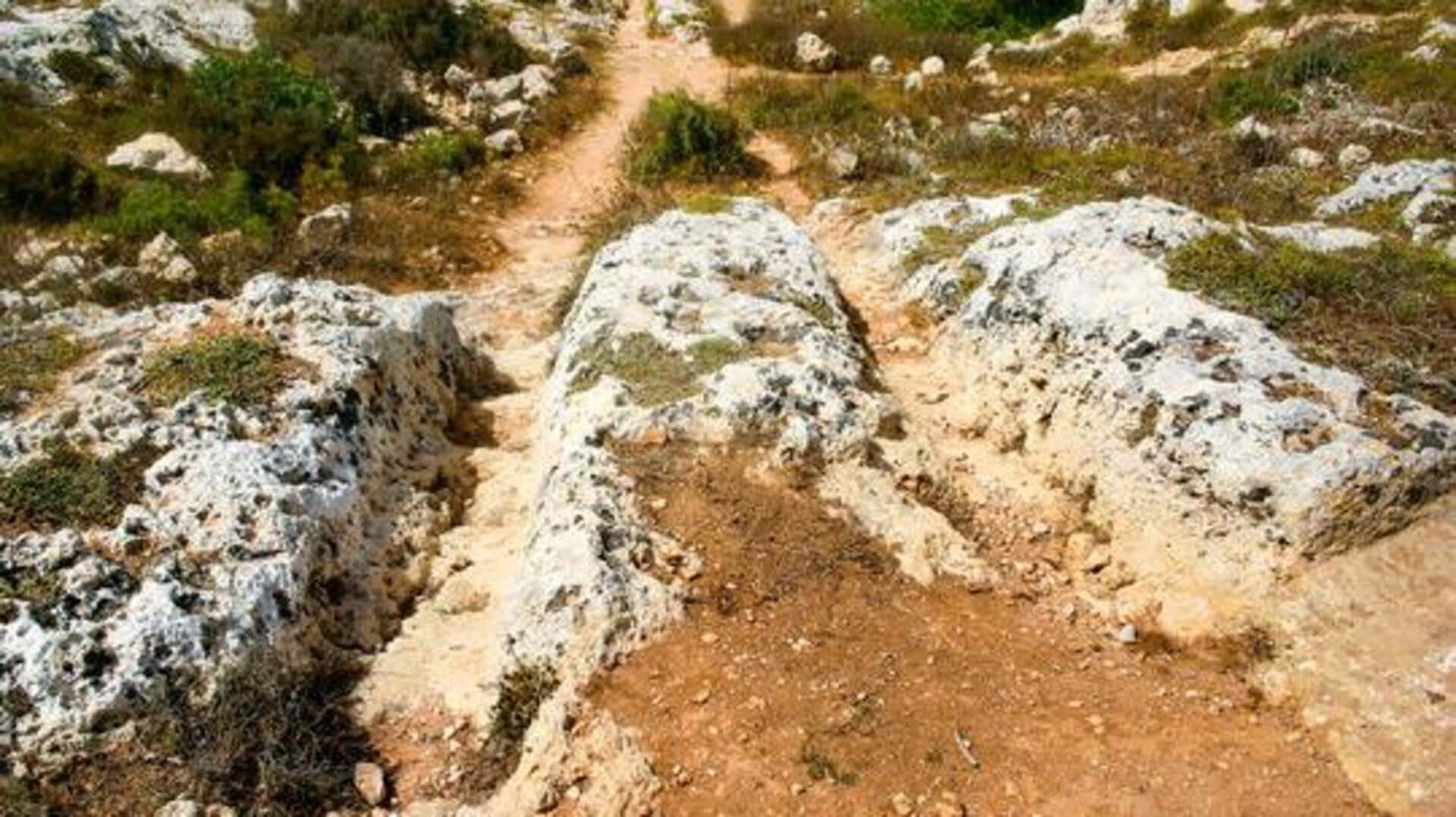
Malta's cart ruts: A must-see archaeological wonder
What's the story
Malta's ancient cart ruts remain an intriguing mystery that has puzzled historians and archaeologists for centuries. These parallel grooves carved into the limestone bedrock are scattered across Maltese islands, some dating back thousands of years. Their purpose is still unknown, leading to several theories from transportation tracks to irrigation systems. Visiting these enigmatic formations gives a peek into Malta's rich history and makes one wonder how they were made.
Possible explanations
Theories behind the ruts
Theories regarding the purpose of the cart ruts range from the plausible to the outrageous. Some claim they were utilized for transporting goods, while others argue they formed a part of an ancient irrigation system. Another theory suggests they were ceremonial pathways or even astronomical alignments. Despite extensive research, no definitive explanation has been confirmed, making way for speculation and further study.
Notable sites
Locations across Malta
Cart ruts are scattered across various sites in Malta, with the most popular ones being in Clapham Junction and Misrah Ghar il-Kbir. These regions display a complex network of ruts intersecting at varying angles and depths. A visit to these sites will allow you to see how complex and extensive these ancient formations are.
Protecting heritage
Preservation efforts
Going forward, efforts are being made to preserve Malta's cart ruts as a part of its cultural heritage. Conservation initiatives are focused on protecting these historical landmarks from natural erosion and human interference. By maintaining these sites, future generations will have a chance to explore this intriguing side of Maltese history.
Practical advice
Tips for visitors
When visiting Malta's cart ruts, make sure to wear comfortable shoes appropriate for walking on uneven terrain. Carry water and sun protection if you're exploring in the warmer months. Respect the guidelines of the site by not disturbing or damaging any formations you come across during your visit.